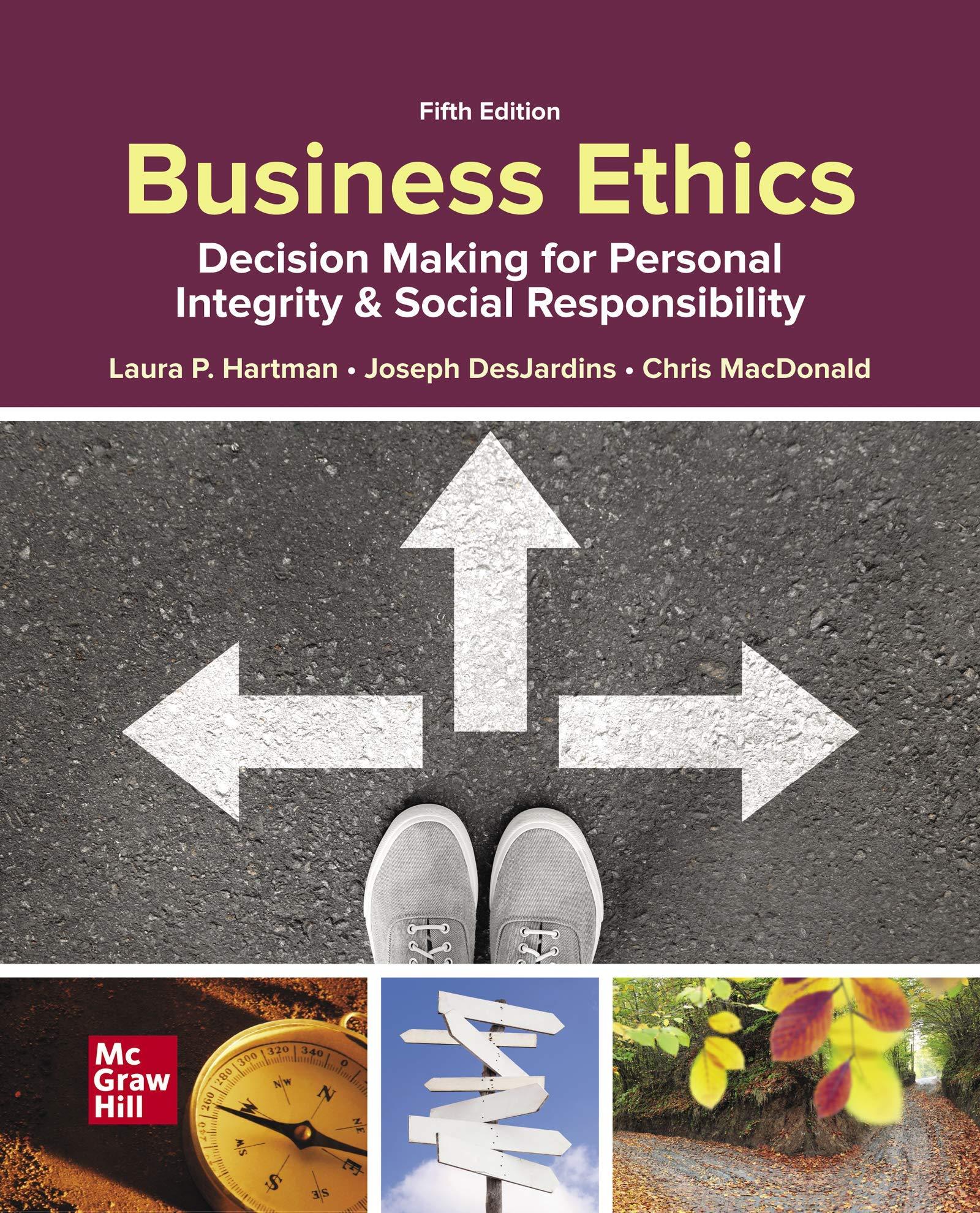Assume you are charged with drafting your organizations policy on workplace dating. In which direction will you
Question:
Assume you are charged with drafting your organization’s policy on workplace dating. In which direction will you tilt with regard to its management of this issue? Utilitarian, or more in line with the 28% of workplaces that simply prohibit workplace dating in order to have a clearer line of demarcation? If you opt for the former, what ethical issues do you anticipate, and how do you plan to respond to them because planning ahead will help you to prepare most effectively and ethically? Who are your stakeholders, and what options do you have in your responses to those stakeholders in order to best meet each of their interests and rights?What should company leadership do when it learns that the firm’s founder is “fraternizing” with an employee who is in a subordinate position? Google co-founder Sergey Brin became romantically involved with a Google employee and subsequently divorced his wife.
Complicating things further, Brin’s former sister-in-law and former brother-in-law (his ex-wife’s family members) both have major positions at Google. Brin insists that nothing about his new—or former—relationship will impact Google from a business perspective. But some suspect that this story is only the beginning of a larger problem for Google.
Google maintains an informal approach to workplace dating, and its code of conduct does not prohibit dating between employees.
The code states:
Romantic relationships between co-workers can, depending on the work roles and respective positions of the co-workers involved, create an actual or apparent conflict of interest. If a romantic relationship does create an actual or apparent conflict, it may require changes to work arrangements or even the termination of employment of either or both individuals involved.
Step by Step Answer:

Business Ethics Decision Making For Personal Integrity And Social Responsibility
ISBN: 9781260260496
5th Edition
Authors: Laura Hartman, Joseph DesJardins, Chris MacDonald





